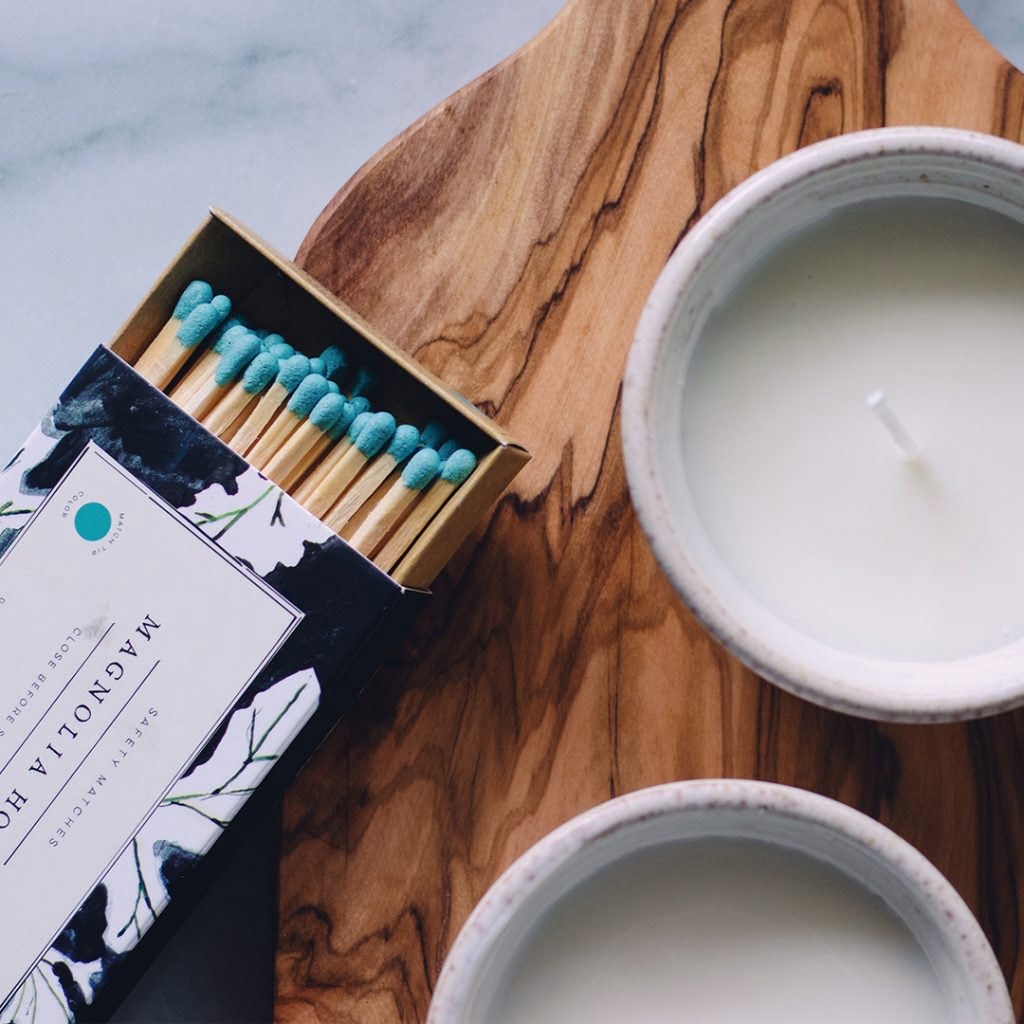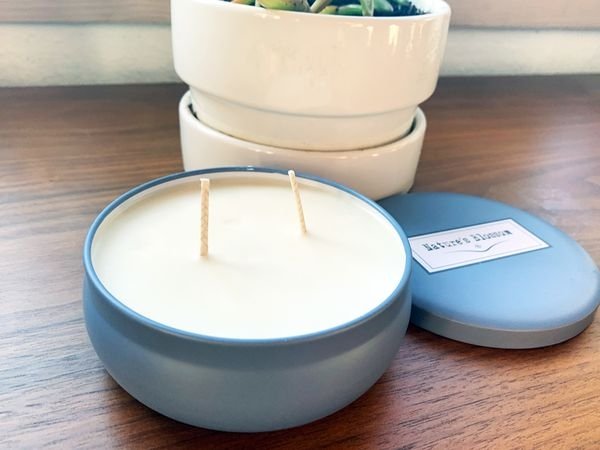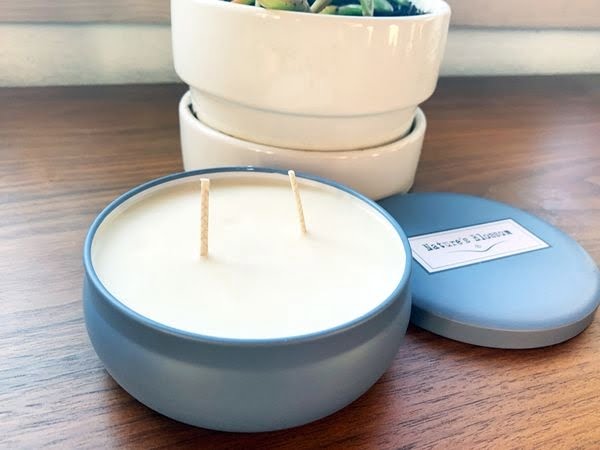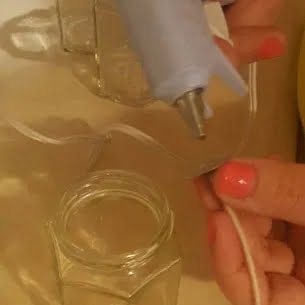Starting a candle making business from home in the UK can be a lucrative and fulfilling venture. With the rising popularity of candles as home decor items and gifts, there is a growing demand for unique, high-quality candles in the market. The beauty of starting this business from home is that it allows you to turn your passion for candle making into a profitable enterprise without the need for expensive overhead costs.
In this article, we will guide you through the process of starting your own candle making business in the comfort of your own home. From understanding the current market trends and potential customers to choosing the right techniques, materials, and tools, we will provide you with all the necessary information to get started.
We will also delve into developing your brand identity, design, packaging, and target audience to ensure that your candles stand out in a competitive market. Additionally, we will walk you through setting up a functional workspace at home that adheres to safety standards and creates an efficient production environment.
Whether you are just starting out or looking to grow and expand your existing candle making business, this article will cover everything you need to know – from sourcing quality materials and suppliers to pricing, marketing strategies, and legal requirements. Get ready to embark on an exciting journey and turn your passion for candle making into a successful home-based business in the UK.
Understanding the candle making industry in the UK
The candle making industry in the UK is a thriving market with high demand for unique and quality candles. Understanding the current market trends and potential customers is crucial for starting a successful candle making business from home.
In recent years, there has been a significant rise in the popularity of candles as decorative and aromatic items. Candles are no longer seen as just functional lighting sources, but have become an essential part of interior design and creating ambiance in homes. This increasing demand presents a great opportunity for entrepreneurs to tap into the candle making industry.
One of the key trends in the UK candle market is the preference for natural and eco-friendly products. Consumers are increasingly conscious about using sustainable materials and non-toxic ingredients. Therefore, incorporating these elements into your candle making process can attract environmentally-conscious customers.
Additionally, there is a growing interest in handmade and artisanal products among consumers. People are seeking unique, one-of-a-kind items that reflect their personal style and values. By offering personalized and custom-made candles, you can cater to this niche market and differentiate yourself from mass-produced candles.
To identify your potential customers, it’s important to consider your target market’s demographics, interests, purchasing power, and preferred distribution channels. Conducting market research or surveys can provide valuable insights into consumer preferences and help you refine your product offering accordingly.
| Current Market Size | £XXX million (source: XYZ Research) |
|---|---|
| Growth Rate | X% per year (source: AB Market Insights) |
| Consumer Preferences | – Natural and eco-friendly products
|
Understanding the candle making industry in the UK, its current market size, trends, and potential customers is essential for successfully starting a candle making business from home. By aligning your products with consumer preferences and offering unique handmade candles, you can carve out a profitable niche in this growing market.
Choosing the right candle making techniques and products
Choosing the right candle making techniques and products is a crucial step in starting a successful candle making business at home in the UK. There are various candle making methods, materials, and tools available in the market, each with its own unique qualities and advantages. By exploring these options, you can find the perfect combination that suits your brand and target audience.
Candle Making Techniques
When it comes to candle making techniques, there are several popular options to choose from. These include:
- Poured Candles: This technique involves melting wax and pouring it into molds or containers. It offers versatility in terms of shape, size, and design.
- Dipped Candles: In this traditional method, wicks are repeatedly dipped into a vat of melted wax until the desired thickness is achieved. It results in elegant taper candles.
- Beeswax Candles: Beeswax candles are made using beeswax sheets that can be rolled or molded into different shapes. They have a natural honey scent and are popular for their clean burn.
- Soy Candles: Soy candles are made from soybean oil and offer a cleaner alternative to traditional paraffin wax candles. They have gained popularity due to their eco-friendly nature.
Candle Making Materials
In terms of materials, there is a wide range of options available for candle making in the UK. Some commonly used materials include:
- Waxes: The type of wax you choose will affect the quality and characteristics of your candles. Popular choices include paraffin wax, soy wax, beeswax, and palm wax.
- Fragrances: Adding fragrances to your candles can enhance their appeal. There are numerous fragrance oils available in a variety of scents to suit different preferences.
- Colorants: To add visual appeal to your candles, you can use colorants. These can be in the form of liquid dyes, powdered pigments, or even natural ingredients like herbs and flowers.
- Wicks: Choosing the right wick is crucial for a successful candle as it determines factors such as burn time and scent throw. Various types of wicks are available, including cotton wicks, wooden wicks, and zinc core wicks.
Candle Making Tools
To create high-quality candles, it is essential to have the right tools. Some tools commonly used in candle making include:
- Melting Pot: A melting pot or double boiler is used to melt wax effectively and maintain an even temperature throughout the process.
- Thermometer: A thermometer is necessary to monitor the temperature while melting wax and adding fragrance or colorants. This ensures that the wax is at the optimal temperature for pouring.
- Molds: Depending on your chosen technique, you may need molds to create different shapes and sizes of candles. These can range from traditional tin molds to silicone molds in various designs.
- Pouring Pitcher: Pouring pitchers with a spout make it easier to pour melted wax into molds or containers without creating a mess.
- Stirring Utensils: Utensils such as stirrers or spoons are required for mixing fragrance oils, colorants, or additives into melted wax.
By carefully selecting the candle making techniques, materials, and tools that align with your vision and brand identity, you can create unique and high-quality candles that stand out in the market.
Developing your unique candle making brand
Developing your unique candle making brand is a crucial step in starting a candle making business from home in the UK. By creating a strong and distinct brand identity, you can set yourself apart from competitors and establish a loyal customer base. Here are some tips to help you develop your brand:
- Define Your Brand Identity: Start by identifying what sets your candle making business apart from others. Consider your values, mission, and the story behind your brand. This will help you create a compelling brand identity that resonates with your target audience.
- Design Your Brand Elements: Once you have defined your brand identity, it’s time to design visual elements that reflect it. This includes creating a logo, choosing colors and fonts that align with your brand’s personality, and designing labels or packaging for your candles. Remember that consistency is key across all these elements to strengthen your brand recognition.
- Understand Your Target Audience: To effectively market your candles, it’s essential to understand who your target audience is. Research the demographics and preferences of potential customers in the UK candle market. This will help you tailor your products and marketing efforts to meet their needs and desires.
Packaging also plays an important role in building your brand identity. Consider using eco-friendly materials or unique designs that align with your brand values. You can also include branded elements like stickers or tags to add a personal touch to each candle.
Remember that developing a strong brand takes time and consistency. Continually evaluate and refine your brand strategy based on customer feedback and market trends to ensure its relevance and appeal.
By focusing on creating a unique candle making brand, you can attract customers who resonate with your story, aesthetics, and values. Building a loyal customer base will be vital for the success of your home-based candle making business in the UK.
Some examples of successful candle brands in the UK are:
- The Candle Company: Known for their luxury soy candles with elegant packaging designs.
- Made by Zen: Offers high-quality candles with a focus on natural and eco-friendly ingredients, targeting health-conscious consumers.
- Jo Malone London: A renowned brand offering luxurious scented candles, known for their elegant packaging and unique fragrance combinations.
By studying successful candle brands in the UK, you can gain inspiration and insights to help develop your own unique brand. Remember, building a strong brand is an ongoing process that requires constant evolution and adaptation to stay relevant in a competitive market.
Setting up your candle making workspace at home
Setting up a dedicated workspace for candle making is essential for ensuring efficiency, productivity, and safety. Creating a functional and safe area for candle production at home requires careful planning and organization. Here is a step-by-step guide to help you set up your candle making workspace:
- Choose the right location: Select a well-ventilated space with good natural or artificial lighting. It should be an area that can be easily cleaned and has minimal risk of fire hazards. Avoid using your kitchen as it can be prone to oil stains and potential food contamination.
- Design your workspace layout: Determine the amount of space you need based on the scale of your candle making operation. Consider allocating separate areas for different tasks such as pouring, melting, and curing candles. Ensure there is enough countertop or table space for equipment, tools, and supplies.
- Set up necessary equipment and tools: Invest in essential equipment such as double boilers or wax melters, digital scales, thermometers, pouring pots, heat-resistant containers, stirring tools, wick holders, and molds. Organize them in a way that promotes efficiency and ease of use.
- Arrange storage solutions: Install shelving units or cabinets to store raw materials like wax blocks, fragrance oils, color dyes, wicks, packaging materials, and other supplies. Keep them organized by labeling each shelf or container appropriately.
- Establish safety measures: Safety should be a top priority when setting up your workspace. Install fire extinguishers near the entrance of your workspace and ensure they are easily accessible. Use non-slip mats on the floor to prevent accidents caused by spills or slippery surfaces. Have first aid kits readily available in case of minor injuries.
- Create a hygienic environment: Regularly clean your workspace to maintain cleanliness and prevent dust or debris from contaminating your candles during production. Implement proper storage practices to minimize the risk of cross-contamination between different materials.
By following these steps and creating an organized and safe candle making workspace at home, you can enhance your productivity and enjoyment while ensuring high-quality candles. Remember to always prioritize safety and cleanliness to produce candles that meet customer expectations and regulatory standards.
Sourcing quality materials and suppliers in the UK
When starting a candle making business at home in the UK, it is crucial to source high-quality materials and find reliable suppliers. This section will provide a comprehensive list of trusted suppliers for waxes, scents, molds, and other essential candle making components in the UK.
- Waxes: Wax is the fundamental ingredient in candle making. Look for suppliers that offer a variety of wax options, such as soy wax, beeswax, paraffin wax, or palm wax. Some reputable UK-based wax suppliers include The Soap Kitchen, Candle Shack, and Craftovator.
- Scents: To add pleasant fragrances to your candles, you’ll need high-quality fragrance oils or essential oils. The Scented Soy Candle Co., Gracefruit Ltd., and The Crafters Shop are popular suppliers known for their wide selection of scents specifically designed for candle making.
- Molds: Molds determine the shape and size of your candles. There are various types available, including silicone molds, metal molds, or glass containers for container candles. Some recommended suppliers for candle molds in the UK are Randall’s Candles & Soaps Ltd., Hobbycraft, and Aromagregory Creative Inc.
- Wick and Wick Accessories: Choosing the right wick is crucial for ensuring proper burning of your candles. Well-known suppliers like CandleScience and Aussie Candle Supplies offer a range of wicks suitable for different types of candles. Additionally, make sure to stock up on wick sustainers (tabs), Wick stickers or adhesive dots to secure the wick to the bottom of your container.
- Colorants and Additives: If you want to create unique colors or add special effects to your candles, consider purchasing colorants and additives from reputable suppliers like Candle Creations or Craftovator.
Remember to research each supplier thoroughly before committing to purchases by reading reviews and ensuring they carry quality products that meet safety standards.
By sourcing materials from trusted suppliers, you can ensure that your candle making business produces high-quality products that will attract and satisfy customers. Additionally, building a good relationship with suppliers may lead to discounts or exclusive deals in the future as your business grows.
Recommended Suppliers for Candle Making Materials
- The Soap Kitchen.
- Candle Shack.
- Craftovator.
- The Scented Soy Candle Co.
- Gracefruit Ltd.
- The Crafters Shop.
- Randall’s Candles & Soaps Ltd.
- Hobbycraft.
- Aromagregory Creative Inc.
- CandleScience.
- Aussie Candle Supplies.
- Candle Creations.
Make sure to compare prices, quality, and shipping options to find the best fit for your candle making needs.
Pricing and marketing strategies for your candle business
One of the key factors in running a successful candle making business is establishing the right pricing strategy for your products. Pricing your candles competitively while ensuring a profit margin is crucial to attract customers and sustain your business. There are several factors to consider when determining the price of your candles, such as materials, labor, overhead costs, and desired profit margin.
To begin with, you need to calculate all the costs involved in producing each candle. This includes the cost of raw materials such as wax, wicks, scents, packaging materials, as well as any additional expenses like equipment maintenance or utilities. It is important to keep track of these costs accurately to ensure that your pricing remains viable.
In addition to production costs, you will also need to determine an appropriate profit margin. This will depend on various factors including market demand, competition, and your business goals. Consider conducting market research to get a better understanding of what potential customers are willing to pay for candles similar to yours. This information can help you set a competitive yet profitable price point for your products.
Once you have established your pricing structure it is important to implement effective marketing strategies to promote your candle business and reach your target market. With the rise of social media platforms like Instagram and Facebook, there are numerous opportunities for online marketing at minimal cost. Create visually appealing content showcasing your candles and their unique features.
Engage with potential customers by hosting giveaways or collaborations with influencers in the home decor or lifestyle niche. Harnessing the power of word-of-mouth recommendations through positive customer experiences can also be a great way to gain visibility and attract new customers.
Investing in targeted advertising campaigns both online and offline can also help raise awareness about your candle business. Consider placing ads in relevant magazines or websites frequented by potential customers who are interested in home decor or self-care products. Attending local craft fairs or markets can provide an opportunity for direct interaction with potential customers and help establish credibility for your brand.
Remember that pricing and marketing strategies are not set in stone. It is important to regularly review and evaluate the effectiveness of your pricing and marketing efforts. Keep track of sales data, customer feedback, and market trends to make necessary adjustments and improvements to ensure the growth and success of your candle making business.
| Strategy | Benefits |
|---|---|
| Social Media Marketing | Low-cost advertising reach, potential for viral content and engagement with target audience |
| Online Collaborations/Influencer Marketing | Increase brand visibility, reach a wider audience, generate buzz through endorsements from influencers |
| Tailored Advertising Campaigns (online/offline) | Precise targeting of potential customers, raising brand awareness in specific niche markets |
Legal requirements and regulations for candle making businesses in the UK
Starting a candle making business from home in the UK is an exciting opportunity, but it’s important to have a clear understanding of the legal requirements and regulations that come with it. This section will provide you with an overview of the key considerations when it comes to licensing, labeling, safety standards, and other legal aspects associated with operating a candle making business in the UK.
Licensing
Before starting your candle making business, it’s crucial to research and obtain any necessary licenses or permits required by your local council or governing body. This may include registering your business as a sole trader or limited company and obtaining any specific licenses for manufacturing or selling candles. Contact your local council or look on their website for guidance on the specific requirements for your area.
Labeling
Proper labeling is essential when selling candles in the UK. Each candle should have a label that includes important information such as the product name, ingredients, safety instructions, warnings, and contact information. Labels should be clear, legible, and durable to ensure they remain intact throughout the lifespan of the product. It’s also important to comply with any specific labeling regulations set by organizations such as Trading Standards.
Safety Standards
Ensuring the safety of your customers is paramount when operating a candle making business. In the UK, candles fall under general product safety regulations. It’s crucial to use high-quality materials that are suitable for candle making and follow safe production practices.
Conduct regular testing of your products to ensure they meet safety standards for flame resistance, stability, and overall quality. Familiarize yourself with relevant safety standards such as BS EN 15426-1:2018 Candles – Specification – Part 1: Product performance requirements.
Other Legal Aspects
In addition to licensing, labeling, and safety standards, there are other legal aspects you need to consider when running your candle making business. This may include issues such as insurance, health and safety regulations, intellectual property protection for your brand and designs, and compliance with data protection laws if you collect customer data. It’s essential to consult with a professional, such as an attorney or accountant, who can provide guidance specific to your business needs.
By understanding and complying with the legal requirements and regulations for candle making businesses in the UK, you can ensure that your business operates within the law while prioritizing the safety of your products and customers. Taking the time to research and implement these legal aspects will help you build a solid foundation for your business’s success.
Launching your candle making business and gaining initial customers
Once you have established your candle making business and are ready to launch, it is essential to create a strong online presence to attract customers. Start by building an attractive and user-friendly website that showcases your candles and tells the story behind your brand. Include high-quality images, detailed product descriptions, and information about your manufacturing process. Ensure that your website is mobile-responsive since many consumers now shop using their smartphones or tablets.
In addition to having a website, it is crucial to utilize social media platforms effectively. Set up accounts on popular platforms such as Instagram, Facebook, and Pinterest to share visually appealing photos of your candles. Engage with your audience by responding promptly to comments and messages. Consider running targeted ads or collaborating with influencers in the home decor or lifestyle niche to reach a wider audience.
Attending craft fairs or local markets is another effective way to gain initial customers for your candle making business. These events provide an opportunity for you to interact directly with potential customers and showcase the quality of your products. Create an eye-catching booth display that reflects your brand identity and encourages people to stop by. Offer samples or promotions during these events to generate interest in your candles.
Lastly, word-of-mouth recommendations are powerful in the candle making industry. Encourage satisfied customers to leave reviews on platforms like Google Business or Yelp. Offer referral incentives such as discounts or freebies when existing customers bring in new clients. By ensuring customer satisfaction and leveraging their positive experiences into referrals, you can build a loyal customer base for your candle making business.
Remember that launching a successful candle making business takes time and dedication. It requires constant effort in marketing, maintaining quality standards, and staying updated with market trends. By creating a strong online presence through websites and social media platforms, participating in local events, and maximizing customer satisfaction, you can start gaining initial customers and hope to see your candle making business thrive.
Growing and expanding your candle making business
In conclusion, once you have successfully launched your candle making business and gained initial customers, it is important to focus on growing and expanding your enterprise. Scaling up production is an essential step in meeting the increasing demand for your candles. This can be achieved by investing in additional equipment and hiring more personnel, if necessary. By streamlining production processes and implementing efficient workflows, you can ensure that your candles are consistently of high quality while also maximizing productivity.
Introducing new product lines is another effective way to expand your candle making business. Consider conducting market research to identify emerging trends and customer preferences. This will help you develop innovative and unique candle products that can attract a wider range of customers. Stay updated with the latest design styles, fragrances, and packaging options to create exciting offerings that differentiate your brand from competitors.
Expanding into wholesale or retail partnerships can greatly increase your brand exposure and reach a larger audience. Approach local boutiques, gift shops, home décor stores, or online platforms that align with the aesthetic and values of your brand. Collaborate with these businesses to showcase and sell your candles in their establishments or on their websites. Wholesale partnerships can lead to bulk orders and recurring sales opportunities, providing stability and growth for your business.
As you grow and expand your candle making business, it is vital to maintain the same level of passion, dedication, and attention to detail that allowed you to achieve success initially. Continuously innovate, adapt to market trends, and listen to feedback from customers to stay ahead of the competition. By carefully strategizing each phase of growth and expansion, you can build a thriving candle making business that offers beautiful products while bringing joy and serenity into people’s lives.
Frequently Asked Questions
How much does it cost to start a candle business from home?
The cost of starting a candle business from home can vary depending on several factors. Initially, you would need to invest in basic supplies such as wax, wicks, fragrance oils, dyes, and containers, which could range from $100 to $500 or more, depending on the scale and quality you aim for. Additionally, there may be expenses related to equipment like melting pots or molds if you don’t already have them.
Apart from these material costs, it’s important to consider other expenses such as packaging materials, labeling, marketing efforts, and potentially obtaining necessary licenses or permits. Therefore, the total cost for starting a candle business from home can vary widely based on your specific goals and budget.
What is the 84 candle rule?
The 84 candle rule refers to an industry guideline that states candles should not burn longer than 84 hours consecutively. This recommendation is primarily focused on safety concerns related to candle usage. Candles burning for extensive periods can increase fire hazards or result in damage due to prolonged heat exposure.
By adhering to the 84 candle rule, both manufacturers and consumers are encouraged to ensure candles are used safely and responsibly. However, it’s worth noting that this rule might not necessarily apply universally across all types of candles produced or sold.
Can I make candles at home and sell them?
Yes, it is generally possible to make candles at home and sell them. Many individuals start their businesses by crafting homemade candles as a hobby and eventually transition into selling their creations for profit.
However, keep in mind that regulations may vary depending on location; therefore, checking local laws and regulations is essential before engaging in any commercial activity involving candles made at home. It’s crucial to prioritize product safety measures during production by using appropriate materials with appropriate instructions for use and ensuring that your candles meet any necessary labeling requirements or testing standards specified by regulatory bodies or consumer safety organizations.

Welcome to my candle making blog! In this blog, I will be sharing my tips and tricks for making candles. I will also be sharing some of my favorite recipes.





